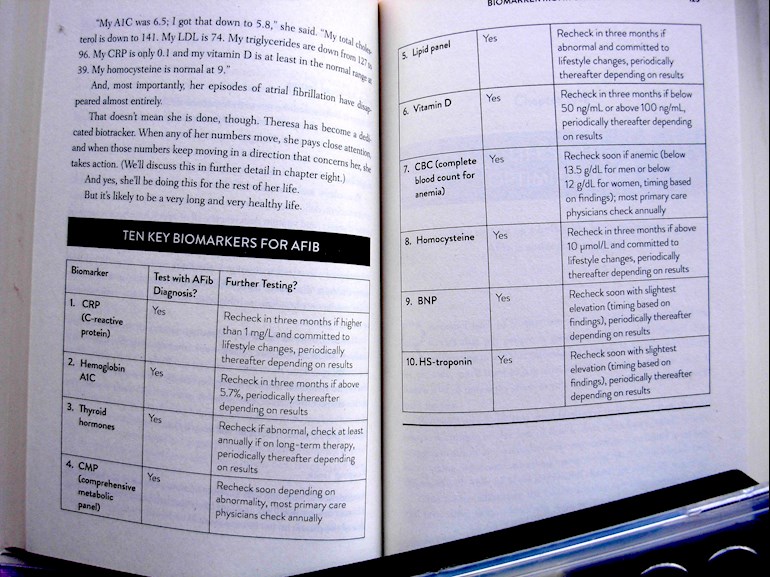I am still working my way through the new book The Afib Cure by US electrophysiologists Drs. John Day & Jared Bunch. And I have to say, the chapter on "Biomarker Monitoring" alone is worth the price of admission.
This photo is their table of the "Ten Key Biomarkers for Afib". And they spend a good 2-3 pages discussing each one, why it's an important gauge of heart health and Afib risk, what numbers you are trying to achieve on each, how frequently you want to test until you reach the "good" number (assuming you are working on lifestyle optimization that will get you there), and then how often you need to test once you are in the good zone.
The Ten Key Biomarkers they discuss are:
1. C-reactive protein
2. Hemoglobin A1C
3. Thyroid hormones
4. Comprehensive Metabolic Panel
5. Lipid Panel
6. Vitamin D
7. Complete Blood Count
8. Homocysteine
9. BNP
10. High Sensitivity Troponin
Some of these you can even test at home with home kits that are available.
Since my cardiologist is useless for anything other than writing prescriptions, I am going to work with my GP to get these tests done so I will have a baseline. And then I will recheck down the road at appropriate interval to see if I am making the necessary improvement on any that need improving.
The chapter on Biomarker Monitoring is followed by a chapter on Lifestyle Optimization, which is all about what you can do/change in your life to get your biomarkers into range.
All in all, this is a very empowering book packed with great information that you can start applying to your life today. And very easy to read.

